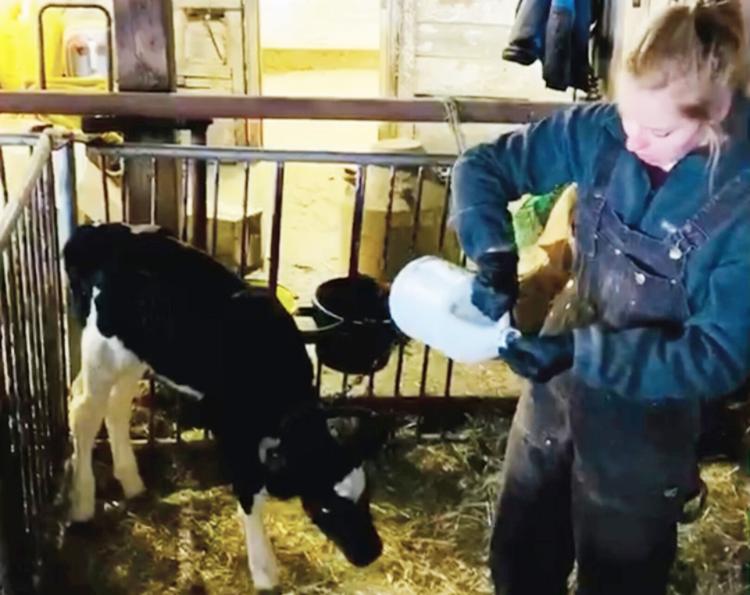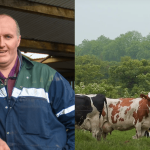
And, will precision treatment have a positive impact of their milk production potential?
Participants in a free Dairy Days Calf Management webinar will learn the preliminary results of the Northern New York Agricultural Development Program-funded research investigating these questions. The webinar will take place via Zoom from noon-2 p.m. on Friday, Jan. 15, 2021.
Cornell Cooperative Extension Regional Dairy Specialists Casey Havekes and Lindsay Ferlito conducted the research in collaboration with Dr. Robert Lynch, a veterinarian with the Cornell PRO-DAIRY Program, and with Sarah Morrison, Ph.D., a research scientist with Miner Institute. Havekes will present the group’s findings during the Jan. 15 webinar as part of a four-session agenda.
The 2014 National Animal Health Monitoring System (NAHMS) Calf Health Report identified neonatal diarrhea, or scours, as the leading cause of death in pre-weaned heifers. A 2017 Northern New York Agricultural Development Program project indicated that calves between the ages of eight and 31 days were most commonly treated with antibiotics for diarrhea.
“The project was designed to identify the most prevalent enterpathogens, including bacteria and viruses, that cause diarrhea in pre-weaned heifer calves, with a long-term view toward being able to reduce antibiotic usage when appropriate,” Havekes explains.
Earlier research trials have observed that bacterial causes account for only 30 percent of diarrheic calves, yet the NAHMS report of 2011 indicated that more than 87 percent of diarrheic calves were treated with antibiotics.
“This research collected approximately 100 fecal samples from calves on farms across northern New York. The aim of this research was to establish baseline data for next-step research to validate an on-farm test that would allow farmers to quickly diagnose the cause of scouring in their calves and thus to precisely target treatment to the specific cause,” Havekes notes.
The research also evaluated how access to water and electrolytes was implemented on farms as a recovery tool for diarrheic calves.
The Jan. 15 webinar is the final program of four days of dairy industry webinars featuring dairy specialists, veterinarians, and agricultural industry representatives from the U.S. and Canada. The Jan. 12-15, 2021, series is free via Zoom. Contact Casey Havekes at 315-955-2059 for details or register online at https://ncrat.cce.cornell.edu/event.php?id=1367.
Funding for the Northern New York Agricultural Development Program is supported by the state Legislature and administrated by the state Department of Agriculture and Markets. Learn more at www.nnyagdev.org.

























